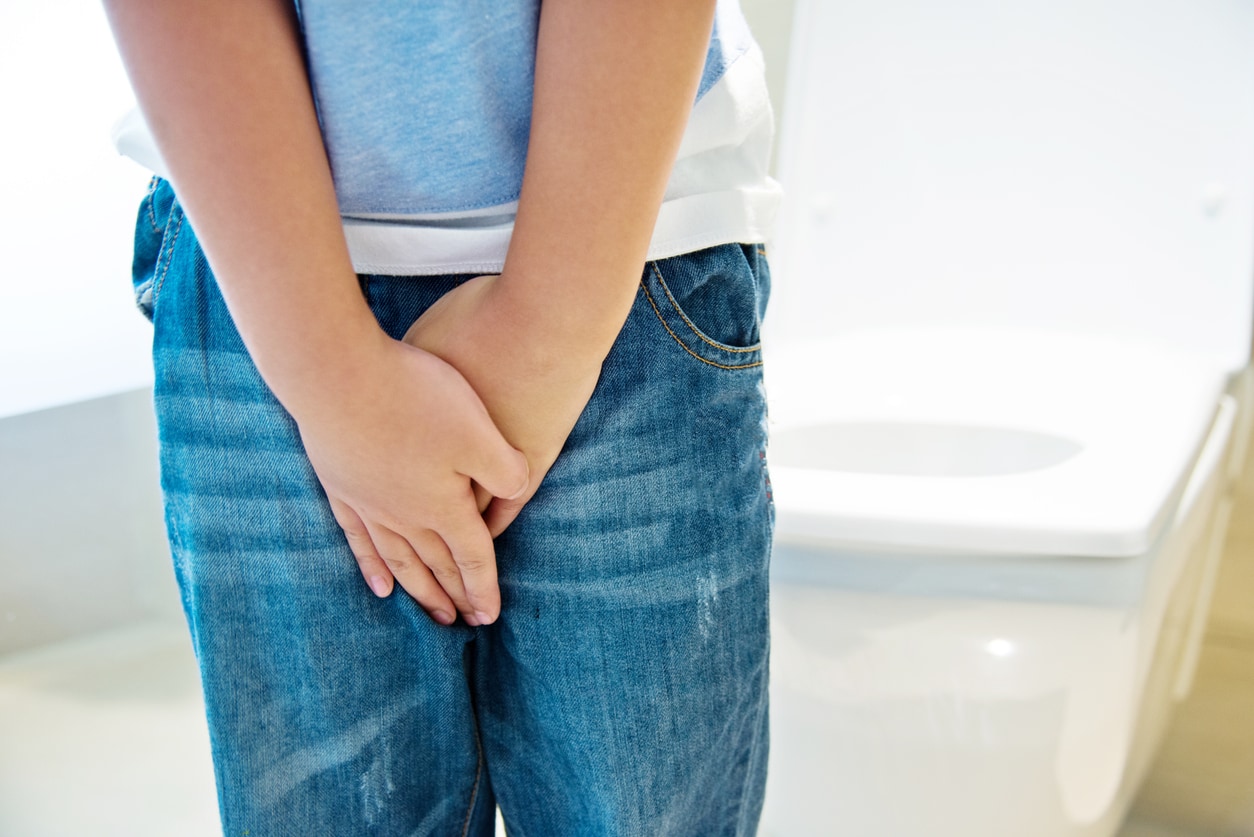

FAQs
What Causes Excessive Flatulence In The Elderly
Modified: August 5, 2023
Discover the common causes of excessive flatulence in the elderly and get answers to your general questions about this uncomfortable condition.
(Many of the links in this article redirect to a specific reviewed product. Your purchase of these products through affiliate links helps to generate commission for Under-tec.com, at no extra cost. Learn more)
Table of Contents
- Introduction
- Understanding Flatulence in the Elderly
- Common Causes of Excessive Flatulence in the Elderly
- Changes in Diet and Eating Habits
- Certain Medications and Supplements
- Digestive Disorders and Conditions
- Reduced Muscle Tone in the Digestive Tract
- Bacterial Overgrowth in the Gut
- Inadequate Chewing and Swallowing
- Food Intolerances and Sensitivities
- Intestinal Obstruction or Blockage
- Psychological Factors and Stress
- Other Contributing Factors
- Managing and Preventing Excessive Flatulence in the Elderly
- Dietary Modifications
- Lifestyle Changes
- Medication Adjustments
- Seeking Medical Evaluation and Treatment
- Conclusion
Introduction
Flatulence, commonly known as passing gas or farting, is a natural bodily function that everyone experiences. It occurs when excess gas builds up in the digestive system and is released through the rectum. While flatulence is normal and usually nothing to be concerned about, excessive flatulence can be an uncomfortable and embarrassing problem, especially for the elderly.
The elderly population often experiences changes in their digestive system as a result of aging and other factors. These changes can contribute to an increase in flatulence and can impact their overall quality of life. In this article, we will explore the causes of excessive flatulence in the elderly and provide strategies for managing and preventing this issue.
It’s important to note that excessive flatulence is a common problem among older adults, and it can have several underlying causes. While it may not be a serious medical condition on its own, it can be a symptom of an underlying digestive disorder or other health issues. Understanding the reasons behind excessive flatulence in the elderly can help individuals and their caregivers address the problem effectively and improve their overall well-being.
Managing excessive flatulence involves taking a multi-faceted approach, including dietary modifications, lifestyle changes, and, in some cases, medical intervention. By identifying the root causes and implementing appropriate strategies, older adults can reduce discomfort and embarrassment associated with excessive flatulence and lead a more comfortable and fulfilling life.
Let’s delve deeper into the common causes of excessive flatulence in the elderly and explore the strategies to manage and prevent this issue.
Understanding Flatulence in the Elderly
Flatulence occurs when the digestive system produces and releases gas. The gas is a byproduct of the breakdown and fermentation of undigested food in the intestines. In healthy individuals, this gas is expelled through the rectum, providing relief and preventing discomfort.
As people age, their digestive system undergoes changes that can contribute to an increase in flatulence. The muscles in the digestive tract may become weaker, resulting in slower digestion and a buildup of gas. Additionally, factors such as changes in diet, medication use, and underlying health conditions can all play a role in excessive flatulence among the elderly.
It’s essential to understand that excessive flatulence is not necessarily a cause for alarm. However, it can be a symptom of an underlying issue that requires attention. By gaining insight into the causes of excessive flatulence in the elderly, individuals and caregivers can make informed decisions regarding management and prevention.
Furthermore, it’s important to recognize that excessive flatulence can have a significant impact on an individual’s quality of life. It can cause discomfort, embarrassment, and social isolation. Therefore, addressing this issue is crucial to improving the overall well-being of older adults.
Next, we will explore the common causes of excessive flatulence in the elderly. By understanding these causes, individuals and healthcare professionals can better tailor treatment and lifestyle modifications to alleviate discomfort and enhance the daily lives of older adults.
Common Causes of Excessive Flatulence in the Elderly
Excessive flatulence in the elderly can have various underlying causes. Understanding these causes is key to effectively managing and preventing this issue. Here are some common factors that contribute to excessive flatulence:
- Changes in Diet and Eating Habits: As people age, dietary changes and decreased activity levels may lead to a higher intake of gas-producing foods, such as beans, lentils, certain vegetables, and carbonated beverages. Moreover, inadequate chewing and swallowing can result in the ingestion of more air, leading to increased flatulence.
- Certain Medications and Supplements: The elderly often take multiple medications and supplements, some of which can cause an increase in gas production. Examples include antibiotics, laxatives, certain pain medications, and dietary supplements containing fiber or artificial sweeteners.
- Digestive Disorders and Conditions: Conditions such as irritable bowel syndrome (IBS), lactose intolerance, celiac disease, and inflammatory bowel disease can cause excessive flatulence in older adults. These conditions affect digestion and can result in the fermentation of undigested food, leading to increased gas production.
- Reduced Muscle Tone in the Digestive Tract: With age, the muscles in the digestive tract may weaken, slowing down the movement of food through the system. This can lead to a buildup of gas in the intestines, resulting in excessive flatulence.
- Bacterial Overgrowth in the Gut: Imbalances in the gut microbiota can disrupt normal digestion and contribute to excessive gas production. Certain medications, underlying medical conditions, and dietary factors can contribute to bacterial overgrowth in the gut and exacerbate flatulence in the elderly.
- Inadequate Chewing and Swallowing: Poor dental health or conditions that affect the ability to chew food properly can lead to larger food particles reaching the intestines. This can increase the fermentation process and subsequent gas production.
- Food Intolerances and Sensitivities: As people age, they may develop new food intolerances or sensitivities. Consuming foods that an individual is intolerant to can lead to digestive discomfort and increased gas production.
- Intestinal Obstruction or Blockage: In some cases, excessive flatulence can be a symptom of an underlying intestinal obstruction or blockage. Such conditions require immediate medical attention to prevent further complications.
- Psychological Factors and Stress: Psychological factors and high levels of stress can influence the functioning of the gastrointestinal tract and contribute to increased flatulence in the elderly.
- Other Contributing Factors: Other factors such as swallowing air while chewing gum, smoking, using straw, or wearing ill-fitting dentures can contribute to excessive flatulence in the elderly.
By identifying the underlying causes of excessive flatulence, individuals and healthcare professionals can develop targeted strategies to manage and alleviate this issue. In the following section, we will discuss various approaches for managing and preventing excessive flatulence in the elderly.
Changes in Diet and Eating Habits
Diet plays a crucial role in generating gas in the digestive system. As people age, changes in diet and eating habits can contribute to excessive flatulence in the elderly. Here are some key factors related to diet and eating habits that can increase flatulence:
Ingestion of Gas-Producing Foods: Certain foods are known to produce more gas during digestion. These include beans, lentils, broccoli, cabbage, onions, carbonated beverages, and high-fiber foods. Elderly individuals who consume a diet rich in these foods may experience increased flatulence. Reducing the intake of these gas-producing foods or opting for alternatives can often be helpful in managing excessive flatulence.
Inadequate Chewing and Swallowing: As people age, they may experience dental problems or have difficulties with chewing and swallowing. When food is not chewed properly, larger particles reach the intestines, making them more difficult to digest, resulting in increased fermentation and gas production. Encouraging proper chewing and ensuring the elderly have access to dental care can support better digestion and reduce flatulence.
Eating Patterns and Meal Size: Eating large meals quickly or consuming meals irregularly can contribute to excessive flatulence. Overeating puts excessive pressure on the digestive system, making it more difficult to digest food properly. Encouraging smaller, more frequent meals and ensuring a calm and relaxed eating environment can help alleviate flatulence symptoms.
Excessive Air Swallowing: Consuming food or beverages too quickly, drinking through a straw, or talking while eating can result in excess air swallowing. This trapped air can contribute to bloating and increased flatulence. Encouraging slower eating, minimizing the use of straws, and creating a calm dining atmosphere can reduce the amount of air swallowed and alleviate flatulence symptoms.
Dietary Changes and Intolerances: Aging bodies may develop new food intolerances or sensitivities. These can trigger digestive symptoms, including excessive gas production. Identifying and avoiding foods that cause discomfort or flatulence can help manage this issue. Keeping a food diary or working with a healthcare professional can be beneficial in identifying problematic foods and making adjustments to the diet accordingly.
Awareness of these dietary factors and making appropriate modifications can significantly reduce excessive flatulence in older adults. By working with a healthcare professional or dietitian, individuals can develop individualized meal plans that address their specific needs and promote better digestion.
Continue reading for more strategies on managing and preventing excessive flatulence in the elderly.
Certain Medications and Supplements
The use of medications and supplements among the elderly is common, and some of these can contribute to excessive flatulence. Here are some medications and supplements that can increase gas production in the digestive system:
Antibiotics: Certain antibiotics can disrupt the balance of gut bacteria, leading to an overgrowth of gas-producing bacteria. This imbalance can result in excessive flatulence. If an individual experiences persistent flatulence while taking antibiotics, it is advisable to speak with their healthcare provider to explore alternative options or determine if additional interventions are necessary.
Laxatives: Laxatives are commonly used by older adults to alleviate constipation. However, certain types of laxatives, such as those that contain fiber or cause a rapid increase in bowel movements, can also increase gas production. It is important to discuss the use of laxatives with a healthcare provider to find the most appropriate option that minimizes flatulence symptoms.
Pain Medications: Some pain medications, such as opioids, can slow down digestion and contribute to excessive gas production. If an individual experiences frequent flatulence while taking pain medications, discussing alternative pain management options with a healthcare provider may be beneficial.
Fiber Supplements: While fiber is important for digestive health, certain types of fiber supplements, such as psyllium husk, can cause increased flatulence in some individuals. Gradually increasing the dosage or switching to a different type of fiber supplement may help alleviate this issue.
Artificial Sweeteners: Artificial sweeteners, such as sorbitol and mannitol, are commonly found in sugar-free products and can contribute to excessive flatulence. Checking food labels for these ingredients and reducing their consumption can help manage flatulence symptoms.
If an individual suspects that a medication or supplement is contributing to their excessive flatulence, it is crucial to consult with their healthcare provider before making any changes. The healthcare provider can evaluate the specific medications or supplements being taken and determine if adjustments are necessary to alleviate flatulence symptoms.
Continuing to the next section, we will discuss digestive disorders and conditions that can contribute to excessive flatulence in the elderly.
Digestive Disorders and Conditions
Several digestive disorders and conditions can contribute to excessive flatulence in the elderly population. Understanding these conditions can help individuals and healthcare professionals effectively manage flatulence symptoms. Here are some common digestive disorders and conditions associated with excessive flatulence:
Irritable Bowel Syndrome (IBS): IBS is a chronic gastrointestinal disorder characterized by abdominal pain, changes in bowel movements, and bloating. These symptoms can lead to increased gas production and flatulence. Managing IBS typically involves dietary modifications, stress reduction techniques, and medication management under the guidance of a healthcare professional.
Lactose Intolerance: Lactose intolerance is the inability to digest lactose, a sugar found in dairy products. This condition occurs when the body doesn’t produce enough lactase, the enzyme needed to break down lactose. When lactose remains undigested, it ferments in the colon, leading to excessive gas production and flatulence. Limiting or avoiding lactose-containing foods and using lactase supplements can help manage symptoms.
Celiac Disease: Celiac disease is an autoimmune disorder characterized by an intolerance to gluten, a protein found in wheat, barley, and rye. In people with celiac disease, consumption of gluten damages the lining of the small intestine, resulting in digestive symptoms like bloating, diarrhea, and increased flatulence. Strict adherence to a gluten-free diet is necessary to manage celiac disease effectively.
Inflammatory Bowel Disease (IBD): Inflammatory bowel disease, including Crohn’s disease and ulcerative colitis, involves chronic inflammation of the digestive tract. These conditions can cause symptoms such as abdominal pain, diarrhea, and increased flatulence. The management of IBD typically includes medication, dietary adjustments, and medical supervision.
Small Intestinal Bacterial Overgrowth (SIBO): SIBO occurs when there is an overgrowth of bacteria in the small intestine. This overgrowth can disrupt the normal digestion process, leading to increased gas production and flatulence. Treatment for SIBO often involves a combination of antibiotics and dietary modifications to restore the balance of gut bacteria.
If an individual suspects they have a digestive disorder or condition contributing to excessive flatulence, it is essential to seek medical evaluation and guidance. A healthcare professional can provide an accurate diagnosis and develop a personalized treatment plan to manage the underlying condition and alleviate flatulence symptoms.
Next, we will explore the impact of reduced muscle tone in the digestive tract on excessive flatulence in the elderly.
Reduced Muscle Tone in the Digestive Tract
As individuals age, they may experience a natural decline in muscle tone throughout their bodies, including in the digestive tract. This reduced muscle tone can contribute to various digestive issues, including excessive flatulence. Here’s how decreased muscle tone in the digestive tract can impact flatulence in the elderly:
Slower Digestion: The muscles in the digestive tract play a crucial role in moving food through the system. With reduced muscle tone, the movement of food can slow down, leading to delays in digestion. This delay can result in a buildup of gas in the intestines, leading to increased flatulence.
Impaired Contractions: The contractions of the muscles in the digestive tract, known as peristalsis, help propel food forward and aid in digestion. Reduced muscle tone can weaken these contractions, causing inadequate movement of food and contributing to gas buildup and flatulence.
Weakness in the Anal Sphincter: The anal sphincter is a ring of muscles that controls the release of gas and stools. Reduced muscle tone in this area can weaken the sphincter’s ability to control the release of gas, leading to unintentional flatulence in the elderly.
Delayed Emptying of the Stomach: Weakened muscle tone in the stomach can cause delayed stomach emptying. This delay can result in food staying in the stomach for longer, allowing more time for fermentation and gas production, leading to increased flatulence.
Effective management of reduced muscle tone in the digestive tract involves a combination of lifestyle modifications and targeted exercises:
- Consuming smaller, more frequent meals: Eating smaller portions can help ease the workload on the digestive tract and minimize gas buildup.
- Incorporating regular physical activity: Engaging in light exercises, such as walking or gentle stretching, can help stimulate digestion and maintain muscle tone in the digestive tract.
- Practicing relaxation techniques: Stress and tension can exacerbate digestive issues. Relaxation techniques, such as deep breathing exercises or meditation, can help reduce stress and promote proper digestion.
- Working with a physical therapist: A physical therapist can provide specific exercises targeted at improving muscle tone in the abdominal area, which can support better digestion and reduce flatulence.
By addressing reduced muscle tone in the digestive tract, individuals can improve digestion, reduce gas buildup, and alleviate excessive flatulence in the elderly.
Next, we will explore the impact of bacterial overgrowth in the gut on excessive flatulence.
Bacterial Overgrowth in the Gut
Bacterial overgrowth in the gut refers to an imbalance in the normal population of bacteria in the digestive system. This imbalance can lead to various digestive symptoms, including excessive flatulence. Here’s how bacterial overgrowth in the gut can contribute to increased flatulence in the elderly:
Disruption of Digestive Processes: When there is an overgrowth of certain types of bacteria in the gut, it can disrupt the normal digestive process. Certain bacteria produce more gas during the fermentation process, leading to an increase in flatulence.
Fermentation of Undigested Food: Bacterial overgrowth can lead to the fermentation of undigested food in the intestines. This fermentation process produces gas as a byproduct, resulting in increased flatulence. The undigested food provides a food source for the bacteria, allowing them to thrive and produce more gas.
Increased Sensitivity to Gas: Bacterial overgrowth can lead to increased sensitivity to the gas produced in the gut. This heightened sensitivity can cause individuals to experience discomfort and excessive flatulence even with normal gas production levels.
Management of bacterial overgrowth in the gut involves several approaches:
- Probiotics: Probiotics are beneficial bacteria that can help restore the balance of gut flora. Including probiotic-rich foods, such as yogurt and fermented foods, in the diet can promote the growth of healthy bacteria and reduce excess gas production.
- Antibiotics: In some cases, healthcare professionals may prescribe antibiotics to address bacterial overgrowth. These medications can help reduce the population of excess bacteria in the gut and alleviate flatulence symptoms. However, the use of antibiotics should be under the guidance of a healthcare professional.
- Dietary Modifications: Avoiding certain foods that can exacerbate bacterial overgrowth, such as sugary and processed foods, can be helpful. Additionally, including fiber-rich foods in the diet can promote proper digestion and provide a favorable environment for beneficial gut bacteria.
Addressing bacterial overgrowth in the gut can be an effective strategy for managing excessive flatulence in the elderly. By restoring the balance of gut flora and promoting healthy digestion, individuals can reduce gas production and alleviate flatulence symptoms.
In the next section, we will explore the impact of inadequate chewing and swallowing on excessive flatulence.
Inadequate Chewing and Swallowing
Inadequate chewing and swallowing can contribute to excessive flatulence in the elderly. As people age, they may experience dental problems, difficulty with chewing, or swallowing issues. Here’s how inadequate chewing and swallowing can impact flatulence:
Food Particle Size: When food is not adequately chewed, larger food particles reach the digestive tract. These larger particles are more difficult to digest and can result in increased fermentation and gas production. Inadequate chewing can also prevent the release of digestive enzymes, further hindering the digestion process.
Ingestion of Air: When eating too quickly or not fully chewing, individuals may inadvertently swallow more air. This trapped air can contribute to increased flatulence. Similarly, using straws, gum chewing, and talking while eating can all increase the amount of air swallowed and result in excessive gas production.
Incomplete Digestion: Inadequate chewing can mean that food reaches the stomach and intestines in larger particles. This hampers the digestive process, as enzymes have a harder time breaking down these particles. When undigested food reaches the colon, it becomes a food source for gut bacteria, leading to increased flatulence.
To address inadequate chewing and swallowing, the following strategies may be beneficial:
- Promoting Proper Chewing Techniques: Encouraging individuals to take their time when eating and to chew food thoroughly can improve digestion and reduce gas production. Practicing mindful eating and savoring each bite can help in this regard.
- Dental Care: Maintaining good oral hygiene and addressing dental issues promptly can improve chewing ability and reduce the risk of inadequate chewing.
- Monitoring Eating Behaviors: Paying attention to eating habits, such as eating slowly, taking small bites, and avoiding distractions, can help individuals develop better swallowing and chewing techniques.
- Minimizing Air Ingestion: Discouraging the use of straws, minimizing gum chewing, and reminding individuals to eat without talking can reduce the amount of air swallowed and decrease flatulence.
Addressing inadequate chewing and swallowing can improve digestion and reduce excessive flatulence in the elderly. By implementing these strategies and seeking appropriate dental care, individuals can enhance their overall gastrointestinal health.
In the next section, we will explore the impact of food intolerances and sensitivities on excessive flatulence in the elderly.
Food Intolerances and Sensitivities
Food intolerances and sensitivities can contribute to excessive flatulence in the elderly. As people age, they may develop new intolerances or sensitivities to certain foods. Here’s how food intolerances and sensitivities can impact flatulence:
Lactose Intolerance: Lactose intolerance is a common food intolerance that affects the ability to digest lactose, a sugar found in dairy products. When individuals with lactose intolerance consume lactose-containing foods, such as milk or ice cream, it can lead to excessive gas production and flatulence.
FODMAP Sensitivity: FODMAPs (fermentable oligosaccharides, disaccharides, monosaccharides, and polyols) are a group of carbohydrates that some people are sensitive to. The fermentation of these carbohydrates in the gut can cause gas production and lead to flatulence. Common high-FODMAP foods include certain fruits, vegetables, dairy products, wheat, and artificial sweeteners.
Gluten Sensitivity: Gluten is a protein found in wheat, barley, and rye. In individuals with gluten sensitivity, consuming gluten can trigger digestive symptoms, including excessive gas production and flatulence. Following a gluten-free diet can help manage symptoms in these cases.
Other Food Intolerances: Aside from lactose, FODMAP, and gluten intolerances, older adults may develop other food intolerances as well. These can include intolerances to certain types of beans, specific vegetables, or other substances found in food. Identifying and avoiding problematic foods can help manage flatulence symptoms.
Diagnosing food intolerances and sensitivities may involve keeping a food diary or undergoing specific tests under the guidance of a healthcare professional. Once identified, managing these intolerances and sensitivities typically involves dietary modifications, such as eliminating or reducing the intake of trigger foods.
Strategies for managing food intolerances and sensitivities include:
- Elimination Diet: This involves removing potential trigger foods from the diet for a period of time, then reintroducing them one at a time to identify which ones cause symptoms.
- Working with a Dietitian: Consulting with a registered dietitian who specializes in food intolerances can provide personalized guidance and support in creating a suitable meal plan that avoids trigger foods and ensures proper nutrition.
- Reading Food Labels: Learning to read food labels and becoming aware of ingredients that may trigger symptoms can help individuals with food intolerances avoid problematic foods.
By identifying and avoiding trigger foods, individuals with food intolerances and sensitivities can reduce excessive flatulence and improve their overall digestive health. Working with a healthcare professional or registered dietitian is crucial in managing these conditions effectively.
In the next section, we will discuss the potential impact of intestinal obstruction or blockage on excessive flatulence in the elderly.
Intestinal Obstruction or Blockage
Intestinal obstruction or blockage is a serious condition that can cause excessive flatulence in the elderly. This occurs when there is a partial or complete obstruction in the intestine, preventing the normal passage of food and gas. Here’s how intestinal obstruction or blockage can impact flatulence:
Gas Buildup: With an obstruction or blockage in the intestine, gas can accumulate in the area above the blockage. This can lead to increased flatulence as the gas tries to find an escape route through the rectum.
Abdominal Distension: The presence of an obstruction can cause abdominal distension, which is the swelling or expansion of the abdomen due to trapped gas and food. Along with excessive flatulence, individuals may experience discomfort, bloating, and changes in bowel movements.
Lack of Bowel Movements: In some cases, an intestinal obstruction can cause a lack of bowel movements, leading to a buildup of gas and stool in the affected area. This can result in increased flatulence as the gas builds up behind the obstruction.
It’s important to note that intestinal obstruction or blockage is a medical emergency and requires immediate medical attention. If an individual experiences persistent and severe symptoms such as abdominal pain, distension, vomiting, and the absence of bowel movements, it is crucial to seek medical evaluation and treatment.
Medical professionals will perform diagnostic tests, such as imaging scans or endoscopy, to identify the location and cause of the obstruction. Treatment options for intestinal obstruction may include nasogastric decompression, medication to relieve symptoms, or surgical intervention to remove the blockage.
In cases of intestinal obstruction or blockage, managing excessive flatulence involves treating the underlying condition. Once the blockage is resolved, excessive flatulence symptoms will likely diminish. Close communication with healthcare professionals is vital to ensure appropriate medical intervention and to monitor the progress of treatment.
Next, we will explore the potential impact of psychological factors and stress on excessive flatulence in the elderly.
Psychological Factors and Stress
Psychological factors and stress can contribute to excessive flatulence in the elderly. The digestive system is closely connected to our emotions and stress levels, and changes in mental well-being can impact gut function. Here’s how psychological factors and stress can affect flatulence:
Alteration of Gut Function: When individuals experience high levels of stress or psychological distress, it can disrupt the normal functioning of the gastrointestinal tract. This disruption can lead to changes in gut motility, digestion, and gas production, resulting in increased flatulence.
Increased Sensitivity: Psychological factors can heighten an individual’s sensitivity to bodily sensations, including sensations related to gas and flatulence. As a result, individuals may perceive normal levels of gas as excessive, leading to increased awareness and concern about flatulence.
Changes in Eating Habits: During periods of stress or emotional distress, individuals may alter their eating habits. This may involve consuming large quantities of food quickly, eating unhealthy and gas-producing foods, or skipping meals altogether. These changes can contribute to increased gas production and flatulence.
Stress Reduction Techniques: Implementing stress reduction techniques can help manage excessive flatulence associated with psychological factors. Techniques such as deep breathing exercises, meditation, yoga, and engaging in enjoyable activities can help promote relaxation and improve gut function.
Seeking Emotional Support: If psychological factors are contributing to flatulence, seeking emotional support from family, friends, or healthcare professionals can be beneficial. Talking about feelings and concerns can help alleviate stress and provide guidance in managing psychological factors that contribute to excessive flatulence.
A holistic approach that addresses both the physical and emotional aspects is key in managing excessive flatulence associated with psychological factors. By implementing stress reduction techniques and seeking support, individuals can improve their overall well-being and reduce flatulence symptoms.
In the final section, we will discuss other contributing factors that can contribute to excessive flatulence in the elderly.
Other Contributing Factors
Aside from the previously mentioned factors, there are several other aspects that can contribute to excessive flatulence in the elderly. These factors vary from individual to individual and can include the following:
Swallowing Air: Certain habits, such as chewing gum, smoking, or using a straw while drinking, can cause the ingestion of excessive air. This trapped air can lead to increased flatulence.
Ill-Fitting Dentures: Dentures that do not fit properly can hinder proper chewing and swallowing, leading to inadequate digestion and increased flatulence. Ensuring that dentures are checked and fitted correctly can reduce flatulence symptoms.
Physical Inactivity: Lack of physical activity can contribute to a sluggish digestive system. Regular exercise, such as walking or light aerobic activities, can help stimulate digestion and prevent excessive gas buildup.
Dehydration: Inadequate fluid intake can result in constipation and slowed digestion, which can contribute to excessive flatulence. Staying hydrated by drinking enough water throughout the day is essential for maintaining a healthy digestive system.
Alcohol and Caffeine Consumption: Excessive alcohol and caffeine consumption can irritate the stomach lining and disrupt the normal functioning of the digestive system. This disruption can lead to increased flatulence. It’s important to moderate alcohol and caffeine intake to manage flatulence symptoms.
Underlying Medical Conditions: Some chronic medical conditions, such as diabetes, hypothyroidism, and kidney disease, can affect digestion and contribute to excessive flatulence. Managing these conditions under the guidance of healthcare professionals can help alleviate flatulence symptoms.
Identifying and addressing these other contributing factors can help manage excessive flatulence in the elderly. It is essential to consider these factors alongside other underlying causes to develop an effective plan for managing and alleviating flatulence symptoms.
By understanding these various contributing factors and working with healthcare professionals to address them, individuals can find relief from excessive flatulence and improve their overall quality of life.
Managing and Preventing Excessive Flatulence in the Elderly
Excessive flatulence can be managed and prevented through a combination of strategies tailored to the individual’s specific circumstances. By addressing the underlying causes and incorporating lifestyle modifications, individuals can reduce discomfort and improve their quality of life. Here are some approaches for managing and preventing excessive flatulence in the elderly:
Dietary Modifications: Adjusting the diet can play a significant role in managing flatulence. This may involve reducing the consumption of gas-producing foods such as beans, lentils, certain vegetables, and carbonated beverages. Gradual changes in the diet and keeping a food diary can help identify trigger foods and minimize their intake. Working with a registered dietitian can provide personalized guidance and ensure proper nutrition while managing flatulence.
Lifestyle Changes: Incorporating healthy lifestyle habits can support better digestion and reduce flatulence. Regular physical activity, such as walking or gentle exercises, can stimulate bowel movements and improve overall gut function. Managing stress through relaxation techniques such as deep breathing, meditation, or engaging in enjoyable activities can also aid in reducing excessive flatulence.
Medication Adjustments: If medications are contributing to excessive flatulence, discussing alternative options with a healthcare provider may be beneficial. Adjusting the dosage or switching to different medications that have fewer digestive side effects can alleviate flatulence symptoms.
Seeking Medical Evaluation and Treatment: If excessive flatulence persists despite dietary and lifestyle changes, it is advisable to seek medical evaluation. A healthcare provider can assess the individual’s symptoms, evaluate for any underlying medical conditions, and provide appropriate treatment strategies. This may include prescribing medication, conducting further tests, or referring to a specialist.
Gradual Changes and Patience: It’s important to note that managing excessive flatulence may take time and a gradual approach. It may require trial and error to identify the most effective strategies for each individual. Patience and persistence are key in finding the right combination of dietary modifications, lifestyle changes, and medical interventions that best address the underlying causes of excessive flatulence.
By implementing these strategies and working closely with healthcare professionals, the management and prevention of excessive flatulence in the elderly can greatly improve. Remember that everyone’s experience is unique, so finding the right balance of approaches for each individual is essential. With proper care and attention, older adults can reduce discomfort and enhance their overall digestive well-being.
Dietary Modifications
Diet plays a significant role in managing and preventing excessive flatulence in the elderly. Making specific dietary modifications can help reduce gas production and alleviate discomfort. Here are some strategies for dietary modifications:
Identify Gas-Producing Foods: Start by identifying and avoiding foods that commonly produce gas. These may include beans, lentils, broccoli, cabbage, onions, carbonated beverages, and high-fiber foods. Keep a food diary to track which foods tend to trigger excessive flatulence and adjust the diet accordingly.
Gradual Changes: Make dietary modifications gradually to give the body time to adjust. Sudden and drastic changes can cause digestive distress. Instead, slowly reduce gas-producing foods while incorporating other alternatives into the diet.
Fiber Intake: Adequate fiber intake is important for overall digestive health, but it’s essential to choose fiber sources wisely. Opt for soluble fibers found in fruits, vegetables, and oats, as they are less likely to cause excessive gas production compared to insoluble fibers. Gradually increase fiber intake while monitoring its impact on flatulence symptoms.
Small, Frequent Meals: Consuming smaller, more frequent meals can help reduce the burden on the digestive system, preventing excessive gas buildup. Opt for five to six smaller meals per day instead of three large meals.
Avoid Drinking Through a Straw or Chewing Gum: Using a straw or chewing gum increases the amount of air swallowed, leading to excessive gas in the digestive system. Minimize or eliminate these habits to prevent additional gas buildup.
Hydration: Drink an adequate amount of water throughout the day to support proper digestion. Dehydration can lead to constipation and slower digestion, contributing to increased flatulence. Aim for at least eight glasses of water per day, unless otherwise directed by a healthcare professional.
Probiotics and Fermented Foods: Incorporating probiotics, either through supplements or fermented foods like yogurt and sauerkraut, can help promote a healthy balance of gut bacteria. Probiotics support optimal digestion and may help reduce excessive flatulence.
Individualized Approach: Every individual is unique, and what works for one person may not work for another. It’s important to pay attention to personal triggers and preferences. Working with a registered dietitian can provide personalized guidance, support, and meal planning that takes into account specific dietary needs and preferences.
Remember, implementing dietary modifications requires patience and careful monitoring of symptoms. It may take time to identify the specific triggers and find the ideal balance for each individual. By making gradual adjustments to the diet and working closely with a healthcare professional or dietitian, the management and prevention of excessive flatulence through dietary modifications can be achieved successfully.
Lifestyle Changes
Lifestyle changes can have a significant impact on managing and preventing excessive flatulence in the elderly. By adopting healthier habits and incorporating specific lifestyle modifications, individuals can improve digestion and reduce flatulence symptoms. Here are some lifestyle changes to consider:
Regular Physical Activity: Engaging in regular physical activity can help stimulate the digestive system and promote optimal bowel movements. Light exercises, such as walking, swimming, or gentle yoga, can support better digestion and reduce the likelihood of gas buildup in the intestines.
Avoid Excessive Air Swallowing: Minimize habits that involve excessive air swallowing, such as chewing gum, smoking, or drinking through straws. These activities can introduce excess air into the digestive system, leading to flatulence. Opt for alternative ways to manage stress or oral sensory needs.
Manage Stress Levels: High levels of stress can disrupt the normal functioning of the digestive system and exacerbate flatulence. Incorporating stress management techniques such as deep breathing exercises, meditation, or engaging in hobbies and activities that bring joy and relaxation can help reduce stress and improve digestion.
Mealtime Habits: Create a calm and relaxed environment during meals. Take time to sit down, chew food thoroughly, and eat slowly. Eating in a rushed and stressful manner can lead to swallowing excess air and disrupted digestion, contributing to flatulence.
Adequate Sleep: Getting enough quality sleep is crucial for overall health, including digestion. Aim for a consistent sleep schedule and create a conducive sleep environment to support optimal digestion and reduce stress levels.
Stay Hydrated: Proper hydration is essential for maintaining healthy digestion. Drink enough water throughout the day to prevent dehydration, which can lead to constipation and slower digestion. Aim for at least eight glasses of water per day, unless otherwise advised by a healthcare professional.
Quit Smoking: Smoking not only affects overall health but can also contribute to excessive flatulence. Quitting smoking can improve digestion and reduce flatulence symptoms. Seek support from healthcare professionals or support groups to assist with smoking cessation.
Mindful Eating: Practice mindful eating by focusing on the sensations and tastes of each bite. Avoid multitasking or eating while distracted. Being present and aware during meals can support proper chewing, digestion, and reduce the likelihood of swallowing excess air.
Lifestyle changes may take time to implement and adapt to, but they can greatly contribute to managing and preventing excessive flatulence. It’s important to be consistent and patient during this process. If challenges arise or individualized guidance is needed, consulting with healthcare professionals or specialists can provide tailored strategies for addressing flatulence symptoms and optimizing overall digestive health.
Medication Adjustments
Medications can sometimes contribute to excessive flatulence in the elderly. If excessive flatulence persists despite dietary and lifestyle modifications, it may be worth exploring potential adjustments to the medications being taken. Here are some considerations for medication adjustments:
Consult with a Healthcare Provider: It’s crucial to consult with a healthcare provider before making any changes to medication regimens, as they can provide appropriate guidance and supervision throughout the process.
Identify Medications That Contribute to Flatulence: Work with a healthcare provider to identify medications that may potentially contribute to excess gas production. Some common culprits include antibiotics, laxatives, certain pain medications, and supplements containing fiber or artificial sweeteners.
Discuss Alternative Medication Choices: If a medication is identified as a potential trigger for excessive flatulence, consider discussing alternative medication options with the prescribing healthcare professional. They may be able to suggest alternative medications that have fewer digestive side effects.
Adjust Medication Dosages: In some cases, adjusting the dosage of a medication may help alleviate flatulence symptoms. This can involve increasing or decreasing the dosage, depending on the individual’s specific needs and the healthcare provider’s recommendations.
Timing of Medication Administration: Inquiring about the optimal timing of medication administration can be helpful. Some medications may be better tolerated when taken with food, while others may be more suitable when taken on an empty stomach. Taking medication as directed may minimize the risk of flatulence as a side effect.
Medication Review: Periodically review the medications being taken with a healthcare provider to assess their ongoing necessity and potential alternatives. This can help ensure that the medication regimen is as streamlined as possible, minimizing the risk of excess flatulence caused by polypharmacy (the use of multiple medications).
Communication with Healthcare Providers: Open and ongoing communication with healthcare providers is essential. Inform them about any persistent flatulence symptoms and discuss the possibility of adjusting medication regimens. They can offer appropriate advice and monitor the impact of any medication adjustments made.
It is important to note that medication adjustments should always be done under the guidance and supervision of healthcare professionals. They can assess the risk-benefit ratio of medication changes and provide personalized recommendations based on each individual’s overall health and well-being.
By addressing potential medication-related triggers for flatulence, alongside other management strategies, individuals can work towards reducing excessive flatulence and improving their quality of life.
Seeking Medical Evaluation and Treatment
If excessive flatulence persists despite dietary modifications, lifestyle changes, and medication adjustments, it is important to seek medical evaluation. Consulting with a healthcare professional can help identify any underlying causes and provide appropriate treatment strategies to alleviate flatulence symptoms. Here are some considerations when seeking medical evaluation and treatment:
Medical History and Symptom Assessment: Be prepared to provide a detailed medical history, including any previous digestive issues or relevant symptoms experienced. Describe the frequency, duration, and characteristics of flatulence, along with any additional symptoms or changes in bowel movements.
Physical Examination: A healthcare professional may perform a physical examination to assess abdominal tenderness, distension, or any other signs of underlying conditions that may contribute to excessive flatulence.
Diagnostic Tests: Depending on the severity and nature of symptoms, the healthcare professional may order additional diagnostic tests. These may include blood tests, stool analysis, imaging studies (such as X-rays or abdominal ultrasound), or endoscopic procedures to evaluate the digestive tract.
Identifying Underlying Conditions: The purpose of medical evaluation is to identify any underlying conditions that may contribute to excessive flatulence. These may include digestive disorders such as irritable bowel syndrome (IBS), lactose intolerance, celiac disease, or inflammatory bowel disease (IBD), among others.
Tailored Treatment Plan: Once an underlying condition is identified, the healthcare professional can develop a personalized treatment plan based on the specific diagnosis. This may involve dietary modifications, medication management, probiotics, or additional interventions targeting the underlying cause.
Monitoring and Follow-up: Regular follow-up appointments are important to monitor the effectiveness of the treatment plan and make adjustments if necessary. The healthcare professional can assess progress, provide ongoing guidance, and address any concerns or new symptoms that arise.
Collaboration with Specialists: In some cases, a referral to a gastroenterologist or other specialists may be necessary to address unique or complex cases of excessive flatulence. Specialists can provide expert evaluation, guidance, and treatment options specific to the underlying condition contributing to flatulence.
Remember, seeking medical evaluation and treatment is crucial to rule out any serious underlying conditions and to access appropriate care. Working closely with healthcare professionals can help manage and alleviate excessive flatulence effectively, improving overall digestive health and quality of life.
Conclusion
Excessive flatulence can be a bothersome issue for the elderly, impacting their comfort and overall well-being. Understanding the various causes of excessive flatulence is key to managing and preventing this condition effectively. It often requires a multi-faceted approach that encompasses dietary modifications, lifestyle changes, medication adjustments, and, when necessary, seeking medical evaluation and treatment.
Dietary modifications play a crucial role in managing flatulence, such as identifying gas-producing foods, making gradual changes, and being mindful of fiber intake. Lifestyle changes, including regular physical activity, stress management, and healthy mealtime habits, can support optimal digestion and reduce flatulence symptoms.
When excessive flatulence persists, medication adjustments may be necessary. Consulting with healthcare providers is essential for identifying medication-related triggers and exploring potential alternative options. Additionally, seeking medical evaluation and treatment is crucial to evaluate for underlying conditions that may contribute to excessive flatulence and to develop personalized treatment plans.
Working closely with healthcare professionals, including dietitians and specialists, ensures tailored approaches for managing and alleviating flatulence symptoms. Monitoring progress, ongoing communication, and diligent follow-up appointments are important in optimizing treatment outcomes.
While managing excessive flatulence can require time and patience, the ultimate goal is to improve the overall quality of life for the elderly. Through a comprehensive and individualized approach, individuals can reduce discomfort, embarrassment, and social limitations associated with excessive flatulence, leading to a more comfortable and fulfilling life.
Remember, the information provided in this article is for informational purposes only and does not replace the advice of healthcare professionals. If you or a loved one is experiencing persistent or severe flatulence, seek medical evaluation from a qualified healthcare provider to determine the most appropriate management plan.










